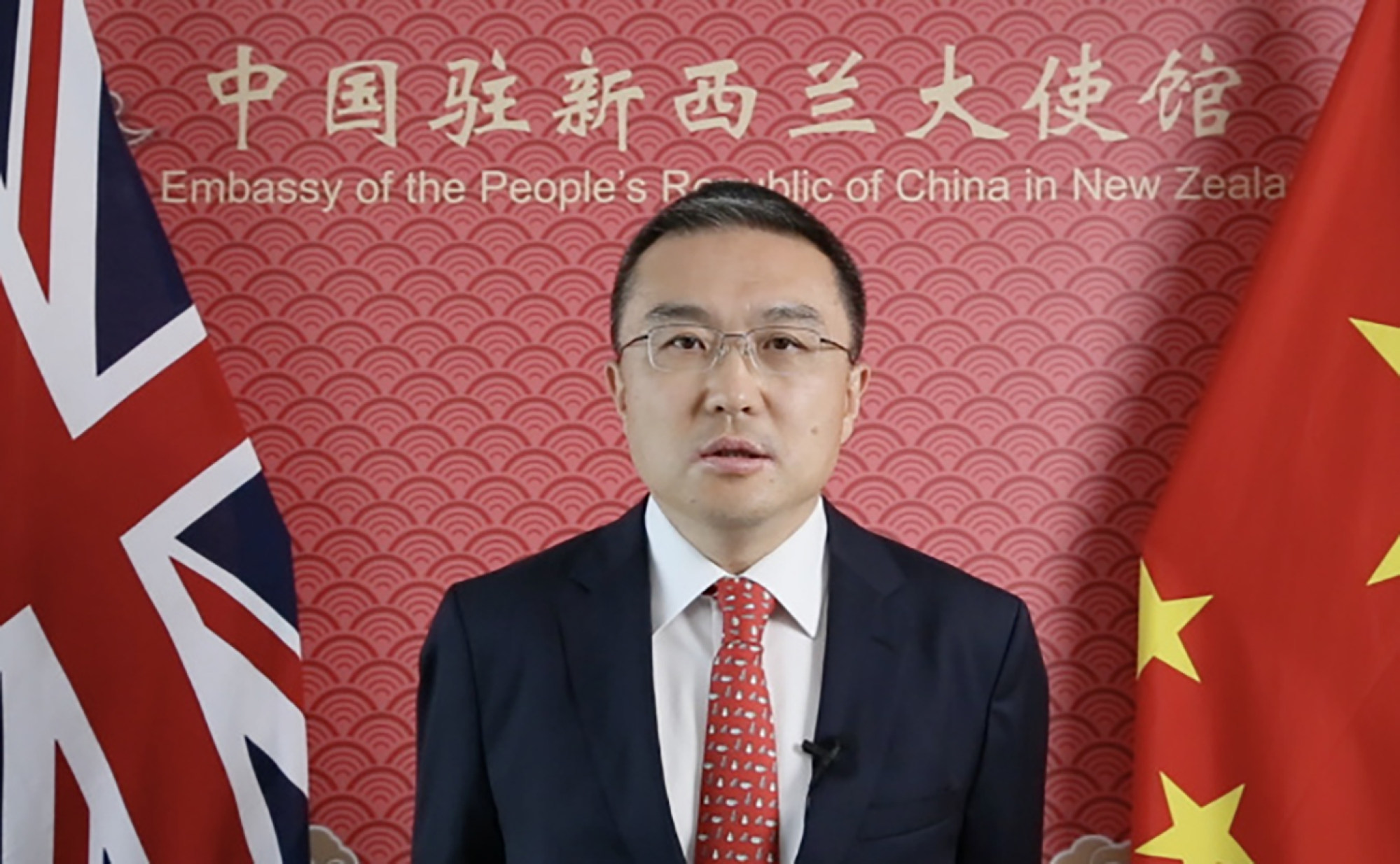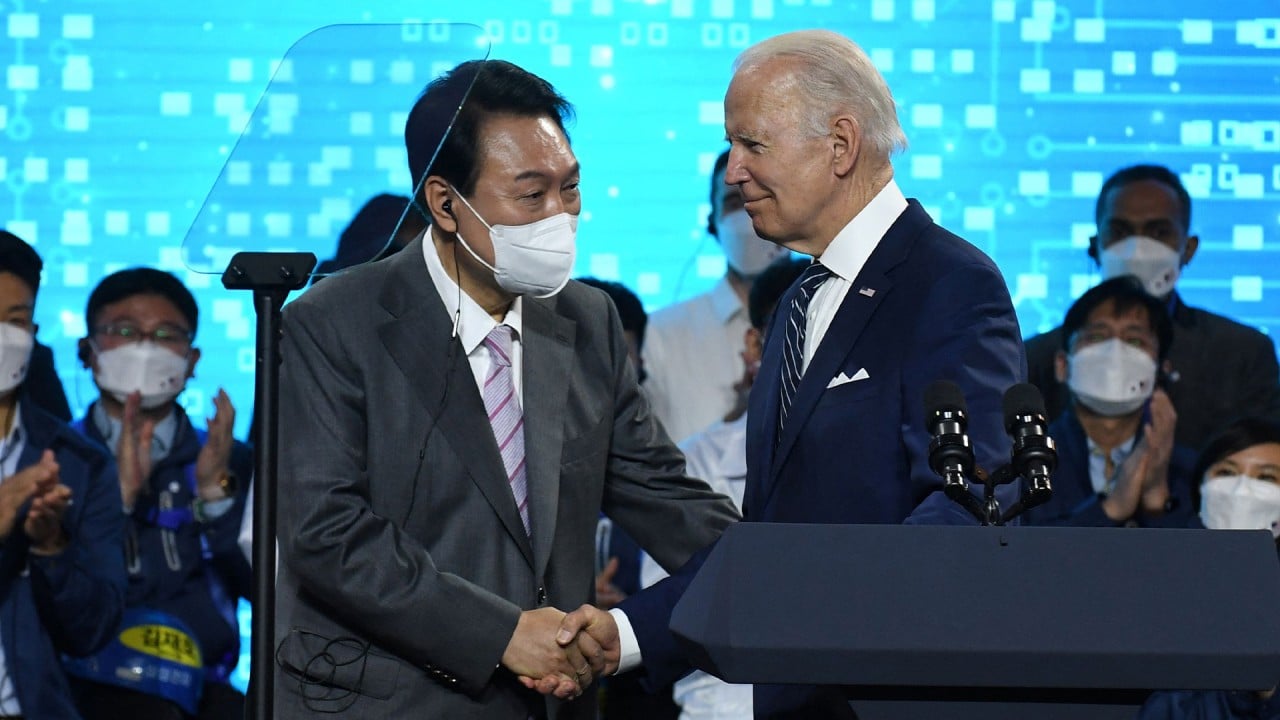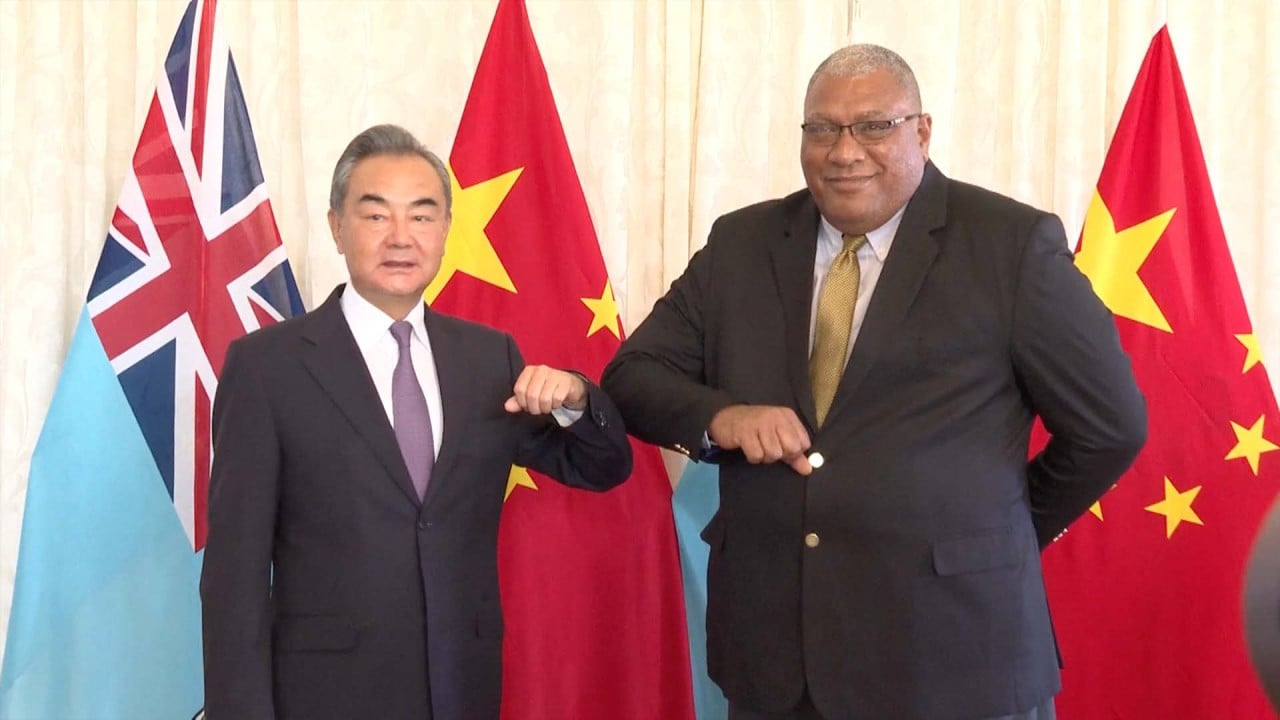
Cosy China-New Zealand relations cannot be taken for granted, Beijing’s ambassador warns
- Ambassador Wang Xiaolong issues thinly veiled warning as leaders of NZ and the US release joint statement on South China Sea, human rights and Solomon Islands
- China’s foreign ministry says it hopes ‘New Zealand will adhere to its independent foreign policy’
“In China, there is widespread cognisance of New Zealand as a green, clean, open and friendly country. This very positive national branding is one of the most valuable assets of our relationship, and arguably the most potent marketing tool for all products and services from New Zealand,” said Wang Xiaolong, the Chinese ambassador, during a speech at the New Zealand China Council on Tuesday.
“We have to keep in mind, though, that this asset of ours did not come out of nowhere or as a matter of course, but has been slowly built up with hard work over the years from both sides. Nor can it be taken for granted.”
Wang’s thinly veiled warning came hours after Wellington and Washington issued a joint statement during a visit to the United States by New Zealand’s Prime Minister Jacinda Ardern. The statement covers a wide range of issues in the region that have upset Beijing.
The statement said the two countries reaffirmed their support for freedom of navigation and flight over the South China Sea and beyond, and expressed “grave concerns” about reported human rights violations in Xinjiang and Hong Kong.

It added that the two emphasised the significance of peace and stability across the Taiwan Strait and encouraged the peaceful resolution of cross-Strait issues.
Possible Pacific militarisation by China ‘gravely concerning’: Ardern
The remarks in the statement were “out of ulterior motives to create disinformation and attack and discredit China”, said Zhao Lijian, a spokesman with China’s Ministry of Foreign Affairs, on Thursday.
“We hope New Zealand will adhere to its independent foreign policy and do more to enhance security and mutual trust among regional countries and safeguard regional peace and stability,” he said.
He added that the remarks “reflect the deep-rooted US hegemonic mentality”.
As Washington seeks to mend ties with its allies and form a more united coalition on China under President Joe Biden, New Zealand has sought to strike an increasingly difficult balance between values, such as human rights, and trade ties with Beijing.
China has ‘no geopolitical intentions’ in Pacific islands relations
While Wellington welcomed Western sanctions against Beijing over human rights in Xinjiang, it did not issue sanctions of its own.
In 2020, New Zealand was also the only member to opt out of a joint statement before the national security law was enacted in Hong Kong, and in January it did not condemn mass arrests of opposition figures and activists in Hong Kong, instead issuing its own statements.



